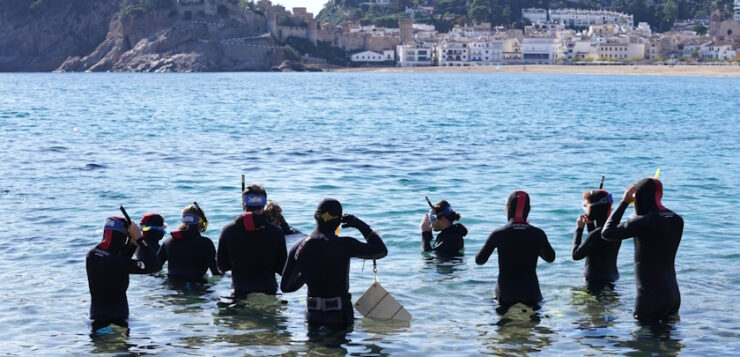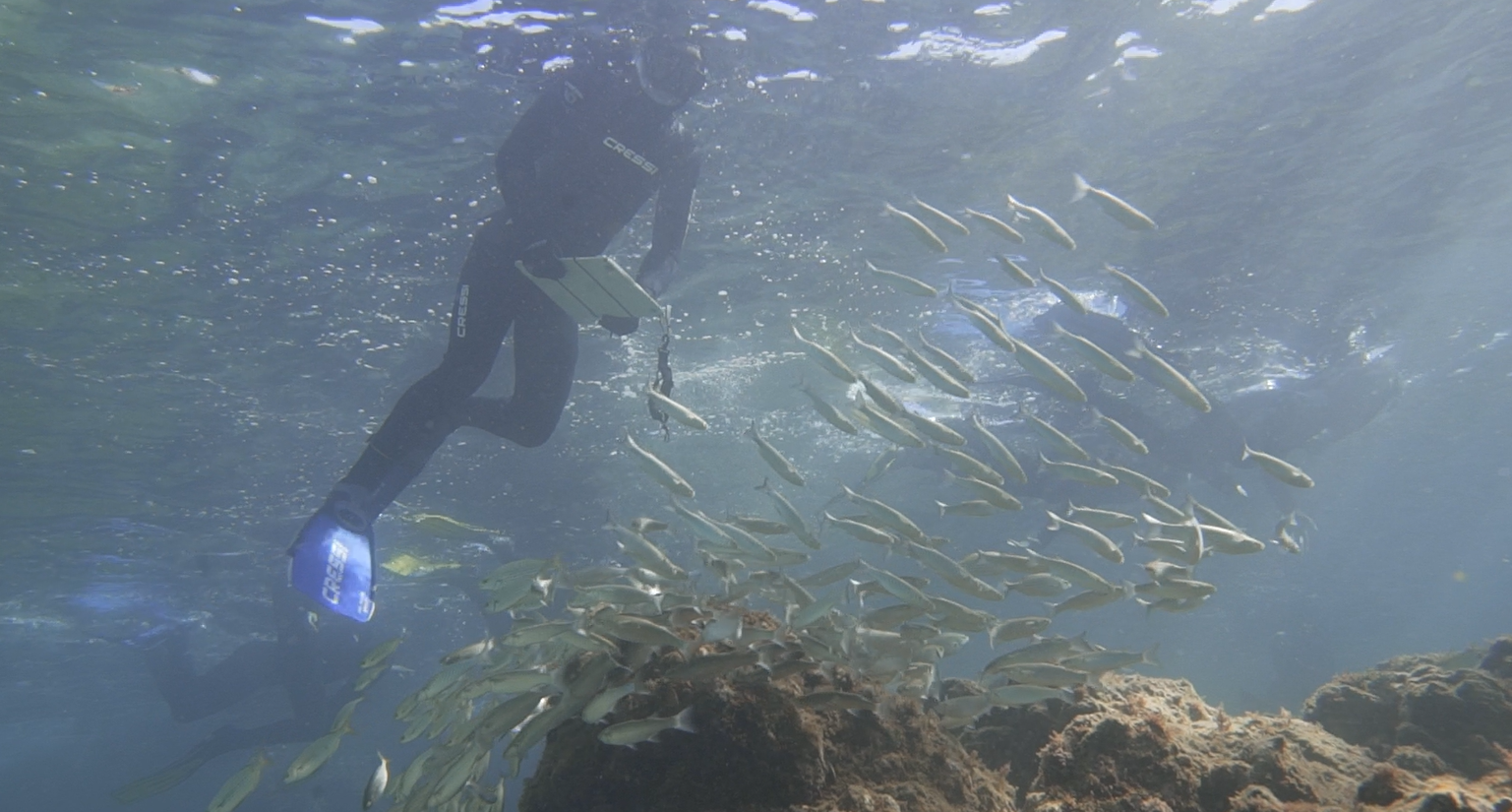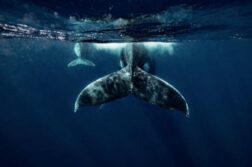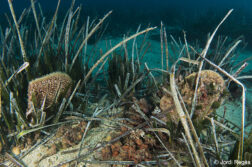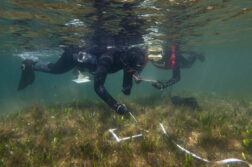LIFE INTEMARES project organized a day to inform the media about the role of marine citizen science in the generation of scientific knowledge about sea warming.
Citizen science is an effective instrument to involve society in the development of knowledge and channel it towards better management. For this reason, LIFE INTEMARES project promotes it by allying itself with Observadores del Mar platform, coordinated by different CSIC centers.
Currently, the platform has 17 active projects dedicated to marine conservation and focused on different scientific areas: biodiversity, exotic species, threatened species, impacts and climate change. 110 researchers from more than 60 research centers, universities and organizations, both Spanish and from 12 other countries, participate. Together with citizens, it has the collaboration of more than 5,500 observers and 490 entities that have registered more than 22,000 observations, which supports the trajectory of this great community of sea lovers.
Thanks to this alliance, it has been possible to strengthen the research network made up of citizens, the scientific community and other key local actors, so that the scientific knowledge generated can be transferred to the administrations competent in the management of protected marine spaces. This transfer is carried out through the integration of information in the Nature Data Bank, among other repositories, where the data is available to managers.
Furthermore, the support of LIFE INTEMARES has made it possible to strengthen and expand the network of Sea Observers from Catalonia, the Valencian Community and the Balearic Islands to the rest of the state’s marine demarcations.
Recording ocean warming with the help of citizen science
In recent years, the Mediterranean has reached the highest temperatures ever recorded. Marine heat waves are starting more frequently, lasting longer, and becoming more intense and frequent. This affects marine life and causes, among other effects, the redistribution of species and mortality phenomena. Mobile species, such as fish, can change their distribution, and some invasive species, accustomed to warmer climates, can colonize new areas. For species that live fixed in the substrate, such as corals and sponges, high temperatures can cause significant mortality or affect vital processes such as reproduction.
Observers of the Sea provides adapted protocols so that citizens can report these phenomena with the greatest possible rigor: the platform has already collected data on coral mortality, through the Coral Attention project, the distribution of fish that are indicators of climate change, through of the Fish and Warming project, massive blooms of Posidonia oceanica, as well as the arrival of invasive species, such as the algae Asparagopsis taxiformis and the pufferfish Lagocephalus sceleratus. The Hidden Deserts project addresses the disappearance of kelp forests, as a consequence of climate change, among other factors.
During the event, held this past November 8, the media were able to learn about these projects first-hand. They visited the laboratories of the Center for Advanced Studies of Blanes (CEAB-CSIC), where they saw samples of how ocean warming affects marine life by acquiring data on the presence of invasive species, indicator fish and mortality. of corals, collected on the platform and offered by citizens.
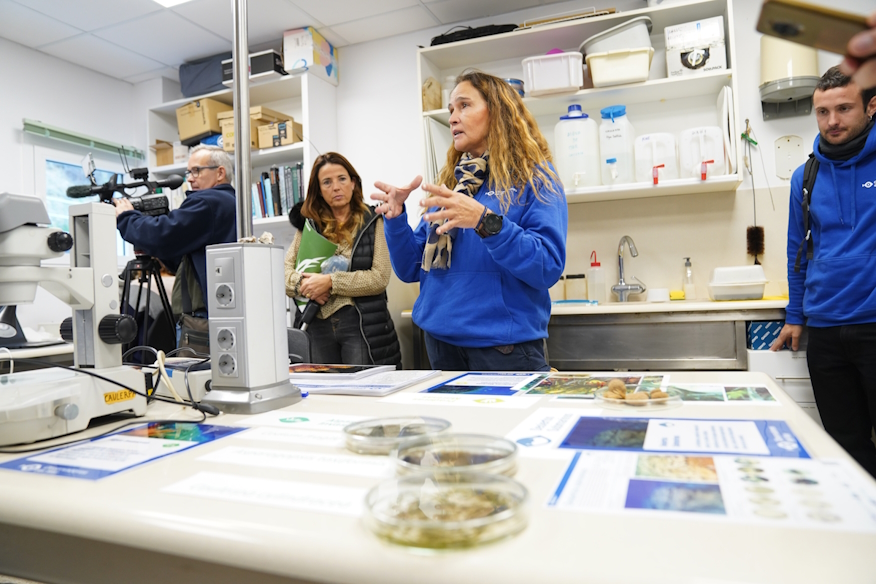
Furthermore, to learn first-hand about the data collection process, the day was complemented with a practical session in the town of Tossa de Mar, where the attending journalists did a snorkelling dive next to the SuperDive Tossa diving center, one of the sentinel observatories that collaborate with Observadores del Mar. This allowed journalists, guided by a scientific team, to identify evidence of the impact of ocean warming on marine species and habitats.
Effective management of protected marine spaces
LIFE INTEMARES moves towards the objective of achieving effective management of the marine spaces of the Natura 2000 Network, with the active participation of the sectors involved and with research as basic tools.
The Biodiversity Foundation of the Ministry for the Ecological Transition and the Demographic Challenge coordinates the project. The ministry itself participates as partners, through the General Directorate of Biodiversity, Forests and Desertification and the Subdirectorate for the Protection of the Sea; the Junta de Andalucía, through the Ministry of Sustainability, Environment and Blue Economy, as well as the Environment and Water Agency; the Spanish Institute of Oceanography; AZTI; the University of Alicante; the Polytechnic University of Valencia; the Spanish Fishing Confederation, SEO/BirdLife and WWF Spain. Be careful with the contribution of the LIFE Program of the European Union.


